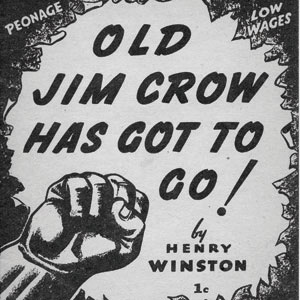Race and Technology – JimCrow.com

Image from Ferris State University
Segregation lives online. During the Civil Rights era segregation, separate but equal, Jim Crow and racial separation was what the fight was all about. Racial equality and justice for all was the battle cry. The fight continues and the new battle field is the Internet.
Information is the currency of the digital age. We live in a world where the money comes from information that is created, accumulated then bought and sold. That information allows the user to discriminate willfully and without consequence. Old prejudices are finding new youth and vigor online. People of color are being harrassed in their own neighborhoods, kept out of other neighborhoods and jobs by racists using technology
Many communities have social sharing websites that is supposed to increase neighborhood cohesion and safety. But some neighbors are using it as channel for racist actions and ideas. Websites like Nextdoor.com have experienced racial profiling on their websites and seeing neighbors target neighbors for the color of their skin.
Nextdoor.com is a website that helps creates “private social networks for neighborhoods.” The website offers a free web platform on which members can post messages about almost anything to people who live in their immediate neighborhood. But too often the social sites are used as tools of suspicion and harrassment.
What has become common on Nextdoor.com are postings that openly label African-Americans and other people of color as suspicious for simply walking down the street, driving through the neighborhood, or knocking on a door. Users of Nextdoor.com have accused black municipal workers and others of being burglars. People have even posted pictures of black people seen in their neighborhood on the websites.
But it gets worse. Try finding a job in the age of the Internet. People with “black sounding” names are 50 percent less likely to get a call back for a job compared to a white sounding name. In other words, Joel will get a job interview, Jamaal will not.
Having a black sounding name and being from the wrong neighborhood makes life even more difficult. Studies indicate that if you live in a certain zip code (i.e,predminantly black) you could also find yourself not getting that call for a job internview. Data collection makes this possible.
Data collection and analysis can determine the make up of a zip code that includes racial make up, income, crime rates and a lot more. Its called demographics.
In 2013 a lawsuit was brought against the State of Nebraska accused the state of discriminating against its African-American employees. The lawsuit claimed that the state offered less health insurance coverage to state workers living in certain zip codes in and around Lincoln and Omaha; black neighborhoods. According to the lawsuit 96 percent of the state’s estimated 450 African-American employees lived in those zip codes.
Internet segregation is as ugly and obvious as it as ever been and the there seems to be no shame or restraint in its practice. We live in a social media, share it all environment and the biggest social media provider of all is Facebook. Facebook has millions upon millions of African-American users and yet Facebook is guilty of allowing its tools and programs to be used to discriminate against people of color.
Facebook’s technology makes it capable of hyper-targeting advetising. And this has created a way for racist to eleminate any possiblity of the “wrong”person” seeing any ad they want to publish. Facebook has profited from selling these racist ads. Facebook calls it “Ethnic Affinity” marketing. But there are other words for it. How about “red lining?”
Red lining is a practice that is used by lenders where they will not provide financial services to certain areas of a city. These are often black comunities where African-American businesses are choked off from loans and other financial services. Real estate red lining has been ruled illegal. All people must be provided the same opportunity in housing and home financing. But that is not always the truth.
A recent report fom Vox.com shows how easy it is to discrminate against minorities in housing. Vox revealed exactly how Facebook’s targted advertising works to exclude people of color from housing opportunities. They did this by setting up a housing ad to eliminate African-Americans, Latinos and Asians from seeing the ad. This is illegal but still goes on today.
The problem is far deeper than you might imagine. Cities and municipalities also discriminate against people of color in housing as revealed by the Vox.com report.
Erin Boggs, Executive Director of the Open Communities Alliance revealed that there are towns that give affordable housing preference to people who already live there. The result is that if a town is mostly white it will likely stay that way.
This type of segregation eliminates blacks and other minorities from housing, jobs and other opportinitues with a single click of the mouse.
According to the Atlantic.com the Internet is as segregated as the real world. In the report it was revealed that people who visited non-racial websites tended to click on other non-racial websites while those that visited racially focused websites tended to visit other racially focused websites. This is commonly called self-segregation.
If you thought that Jim Crow was a dead and racial segregation was a thing of the past you haven’t been online lately.
Now you know.






